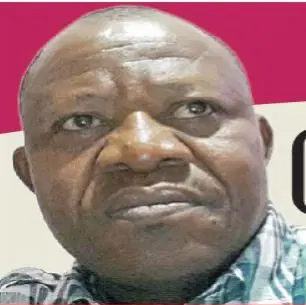Let us analytically examine the above statement, and you will see why Kwankwaso makes me laugh. The former governor of Kano State and leader of the New Nigerian People’s Party (NNPP) betrays his confused state of mind, egotism, and delusion in making this spurious claim. He asserts he is “bigger” than Mr. Peter Obi, the presidential candidate of the Labour Party (LP) during the 2023 elections, without justifying his claim. He cannot justify it because it is a blatant lie.
Election Results and Political Representation
In the presidential election of February 25, 2023, the Independent National Electoral Commission (INEC) recorded Peter Obi in third place with 6,101,533 votes, while Kwankwaso came in a distant fourth with 1,496,687. How can one million be “bigger” than six million except in Kwankwaso’s delusional narrative? Furthermore, Peter Obi led the LP to secure seven seats in the current 10th Senate, with senators drawn from various parts of the country. In contrast, Kwankwaso’s party only managed to pick up two seats, both from Kano. Similarly, in the House of Representatives, LP garnered 36 members, while NNPP obtained 18, almost half. Even Obi’s political rival, Nyesom Wike, acknowledged that Peter Obi was the main focus in the 2023 general elections.
Age and Leadership Quality
Kwankwaso’s second claim, which leads him to conclude he is a better candidate, is based on age. Since when has age truly mattered in politics? Often, age can be a liability. Joe Biden’s age-related issues impacted his race for the presidency of the United States. Moreover, one of Nigeria’s most effective leaders, General Ibrahim Babangida, consistently appointed older deputies, such as Commodore Ebitu Ukiwe and Admiral Augustus Aikhomu, while Namadi Sambo, former President Goodluck Jonathan’s VP, was three years older than Jonathan. This illustrates that age does not equate to effective leadership.
Performance as Governors
Kwankwaso claims he “performed better” as governor, but who determines that? Beauty is often in the eyes of the beholder. Despite Kwankwaso’s educational achievements, Obi, his peer, transformed Anambra from 26th to first in WAEC and NECO performances. In contrast, Kano under Kwankwaso did not achieve similar progress. Obi notably made headlines as the only governor to leave behind billions in savings for his successor. He is also an accomplished economist, businessman, and industrialist with a proven record of integrity, frugality, and selflessness.
Kwankwaso, a PhD holder, has built his fortune in politics and is known as a political dealmaker. During the 2023 presidential race, he expressed willingness to step down for Bola Tinubu of the APC “if certain conditions are met.” Even after the elections, he continued to associate with the “victorious” Tinubu until their negotiations collapsed.
Trust and Leadership Abilities
In terms of trust and leadership abilities, Obi is far ahead of Kwankwaso. The latter seems aware of this, as evidenced by his willingness to “deputize” for the same man he claims is inferior. The reality is that Obi and Kwankwaso are fundamentally incompatible; their visions for Nigeria diverge significantly.
Kwankwaso’s narrow-mindedness, his perceived fundamentalism, and his disdain for the Igbo people are apparent. His focus is not even on the broader North but primarily on Kano. He appears to subscribe to the belief that Northerners are inherently entitled to rule, viewing the rest of the country as a colony of the North. Such attitudes have contributed to the North’s decline and Nigeria’s multifaceted failures.
Concerns About Coalition Dynamics
Kwankwaso is the type of politician who, if made a VP to Obi, might seek to engineer a one-term presidency (the so-called Mandela option) for his principal to enable his takeover. He embodies the type of Northerner who could incite unrest in Kano if his ambitions are thwarted. Thus, Kwankwaso is not suitable as a vice-presidential candidate; he would be a persistent obstacle for any Southern president, particularly one strongly aligned with progressive Igbo ideals.
In the event of a multiparty coalition led by Peter Obi, it is essential that he be allowed to choose his VP. Collaboration requires mutual agreement, and Senator Yusuf Datti Baba-Ahmed remains the best choice for Obi and Nigeria. Baba-Ahmed is a nationalist, intelligent, and dedicated to positive change. As a successful private sector employer and system builder, he transcends sectional interests and could potentially emerge as a worthy president of Nigeria in the future.
Conclusion: The Path Forward
While Kwankwaso and his group may be valuable in a national coalition aimed at unseating the “T-painful” and purposeless All Progressives Congress (APC) administration, building such a coalition will be challenging against a sitting president like Bola Tinubu, who appears well-positioned for a second term regardless of his performance. The complexities of Nigerian politics demand careful navigation and strategic alliances, grounded in shared values and a commitment to genuine progress for the nation.

